There are three genders in German: Masculine, feminine and neuter. Usually, the noun gender is determined by the noun's ending. The endings that mark the masculine gender in order of most importance are:
-ich, -ist, -or, -ig, -ling, -ismus, -ant, -är, -eur, -iker and -ps
- How often this ending is seen: Average
- Plural with "-e"
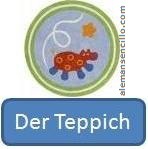
Examples:
| Example | Meaning |
|---|---|
| der Teppich | carpet |
| der Sittich | parakeet |
| der Abgleich | adjustment |
| der Bereich | range |
| der Teich | pond |
Exception: das Reich (kingdom)
- How often this ending is seen: Average
- Plural with "-en"
- Many come from Latin or Greek

Examples:
| Example | Meaning |
|---|---|
| der Artist | artist |
| der Egoist | egoist |
| der Feminist | feminist |
| der Herzspezialist | cardiologist |
| der Komponist | composer |
- How often this ending is seen: Average
- Plural: The majority end with "-en" and some with "-e"
- Many come from Latin
Examples: 
| Example | Meaning |
|---|---|
| der Ventilator | fan |
| der Motor | motor |
| der Faktor | factor |
| der Marmor | marble |
Exceptions: das Fluor (Fluorine), das Chlor (chlorine), das Tor (gate), das Labor (laboratory), das Dekor (decoration)
- How often this ending is seen: Less often
- Plural with "-e"
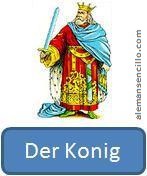
Examples:
| Example | Meaning |
|---|---|
| der König | king |
| der Honig | honey |
| der Essig | vinegar |
| der Käfig | cage |
Exception: das Reisig (brushwood)
- How often this ending is seen: Less often
- Plural with "-e"

Examples:
| Example | Meaning |
|---|---|
| der Schmetterling | butterfly |
| der Frühling | spring |
| der Lehrling | apprentice |
| der Zwilling | twin |
Exceptions: das Bowling, die Reling (railing)
- How often this ending is seen: Less often
- The plural follows this construction even though many nouns lack a plural form: "-ismus" ➜ "-ismen"
- Many come from Latin or Greek

Examples:
| Example | Meaning |
|---|---|
| der Optimismus | optimism |
| der Magnetismus | magnetism |
| der Expressionismus | expressionism |
| der Feudalismus | feudalism |
| der Kapitalismus | capitalism |
- How often this ending is seen: Less often
-Plural with "-en"
- Most words ending with "-ant", especially if they come from Latin
Examples:
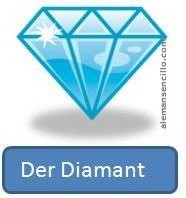
| Example | Meaning |
|---|---|
| der Diamant | diamond |
| der Fabrikant | manufacturer |
| der Elefant | elephant |
| der Lieferant | supplier |
Exceptions: das Restaurant, die Want (shroud)
- How often this ending is seen: Not often
- Most words ending with "-är" are masculine, especially if they are from French
- The plural can be formed with "-e" (for words from French such as der Veterinär ➜ die Veterinäre) or with "-en" (der Bär ➜ die Bären)
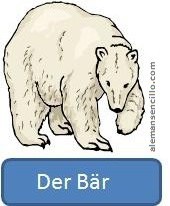
Examples:
| Example | Meaning |
|---|---|
| der Bär | bear |
| der Veterinär | veterinarian |
| der Aktionär | stockholder |
| der Sekretär | secretary |
Exceptions: das Militär (military), das Quartär (quartenary)
- How often this ending is seen: Not often
- Plural with "-e" [der Friseur ➜ die Friseure]
- Many of them come from French
Examples:
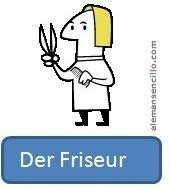
| Example | Meaning |
|---|---|
| der Friseur | hairdresser |
| der Amateur | amateur |
| der Ingenieur | engineer |
- How often this ending is seen: Not often
- No ending is added to form the plural [der Physiker ➜ die Physiker]
- They come from Latin or Greek
Examples:

| Example | Meaning |
|---|---|
| der Alkoholiker | alcoholic |
| der Informatiker | computer scientist |
| der Physiker | physicist |
| der Politiker | politician |
- How often this ending is seen: Seldom
- Plural with "-e" (der Schlips ➜ die Schlipse) but sometimes an "Umlaut" is added to the last vowel of the world to make the plural (der Schnaps ➜ die Schnäpse)
Examples:
| Example | Meaning |
|---|---|
| der Schlips | tie |
| der Gips | cast |
| der Schnaps | schnaps |
| der Klaps | slap |
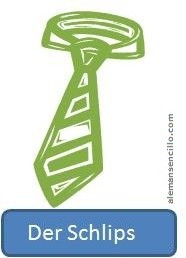
Now you can prove if you have mastered the material in a simple gender exercise (It's pretty fun)
Related topics:Feminine Noun Gender, Gender of Neuter Nouns